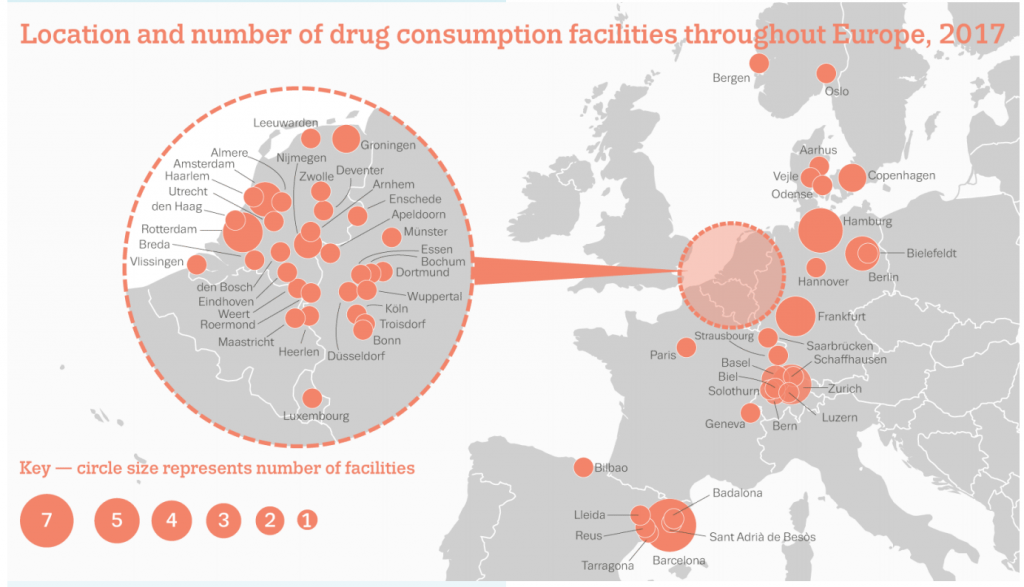West Midlands Police and Crime Commissioner David Jamieson published today a report introducing concrete proposals to reduce crime and prevent harm relating to drugs. “These are bold, but practical proposals that will reduce crime, the cost to the public purse and the terrible harm caused by drugs” said PCC David Jamieson.
Taking people away from the criminal and justice system
The first proposal is the establishment of a formal scheme to divert those suffering from addiction into treatment and away from the courts. This recommendation is backed by a pilot project called Turning Point, which has shown that certain types of offenders could be better dealt with in a diversion programme instead of through the court process.
Shifting identified drug users – and most importantly problematic drug users – from the criminal system to the health system is one of the main stake if not the most important in the drug debate today. If implemented, this measure would call on to review the whole Government Drug Policy which still firmly considers drug use as a criminal offence.
Focus on heroin treatment
A number of measures proposed by the report focus on heroin, since heroin users show the strongest dependence and require more complex treatment options. One of these proposals is the introduction of heroin assisted treatment (HAT) to help people suffering from addiction who have not responded to other forms of treatment. According to the report, heroin users are by far the most profitable target for criminal drug gangs. Supplying heroin addicts with HAT would divert them away from the hands of criminals and stop people from stealing to fund their addiction.
With this same objective in mind, the West Midlands PCC recommends considering the benefits of drug consumption rooms (DCRs) to assess if they would add value to current services in the West Midlands. Currently, one person dies every three days of drugs poisoning in the Midlands, with a death every four hours in England. As mentioned in Back Yard, our report on the feasibility of implementing DCRs in the UK, there is strong evidence showing such facilities reduce the number of deaths and overdoses in the areas where they are implemented. Even though DCRs are not specifically designed for heroin users, both are often linked as they are the ones whose drug consumption presents the most risks, both for themselves and society.
A Home Office spokesperson said “this Government has no plans whatsoever to introduce Drug Consumption Rooms”, stating that “a range of offences is likely to be committed in the operation of drug consumption rooms. We expect local police forces to enforce the law in such circumstances.”
In the UK, there are presently no drug consumption rooms available. In Europe, these facilities are proliferating slowly but many countries have already implemented them. The Glasgow City Council is presently looking to implement one in its city centre, but is dealing with a series of obstacles in the process, including the legal framework in which this is possible or the very location where it will be implemented.
“We know that pragmatic harm reduction interventions such as drug consumption rooms, heroin assisted treatment and drug safety testing can play an extremely helpful role in that process. It is heartening to hear more influential voices, with on the ground experience of these issues, give these measures their backing.” – Shirley Cramer, Chief Executive of the Royal Society for Public Health
PCC David Jamieson also recommends the introduction of on-site drug testing in night-time economy areas to reduce the number of deaths and increase the authorities’ intelligence of drugs in circulation. In the UK, the not-for-profit The Loop is campaigning in favour of implementing drug testing services to reduce harm in place subject to drug use, such as festivals and night clubs.
Getting the money
One of the main obstacles faced by drug policy reformers is the continuous decrease in financial resources both of the police and treatment services to either boost the existing treatment options or try and implement new ones. PCC David Jamieson is very pragmatic about the issue and made sure to include proposals that would address it.
First, a further cooperation and sharing of resources between police forces and treatment services would increase the effectiveness of diverting drug users away from the criminal system toward health authorities. “Despite the good work being done by many, collectively our approach to drugs is failing, said PCC David Jamieson. It means people are forced to live with more crime, public services are put under strain and not enough is done to reduce the suffering of those who are addicted.”
His second proposal is to repurpose the money seized from large-scale organized criminal gangs profiting from the drug trade, which would be injected in drug treatment programmes.
According to PCC David Jamieson, drugs are costing the West Midlands £1.4 billion per year. Using the money seized from criminal drug gangs would allow to narrow that figure down.
The proposals made by the West Midlands PCC to tackle the scourge on drugs are daring. Some are simple to deploy within the current legal framework. Others, like DCRs, require a tangible shift in the current government policy relating to drugs. Having such proposals coming from a PCC shows the UK has started a frank conversation about how we consume and police drugs, and how we can better help problematic drug users.
Pierre-Yves Galléty is Communications Officer at Volteface. Tweets @PYGallety


